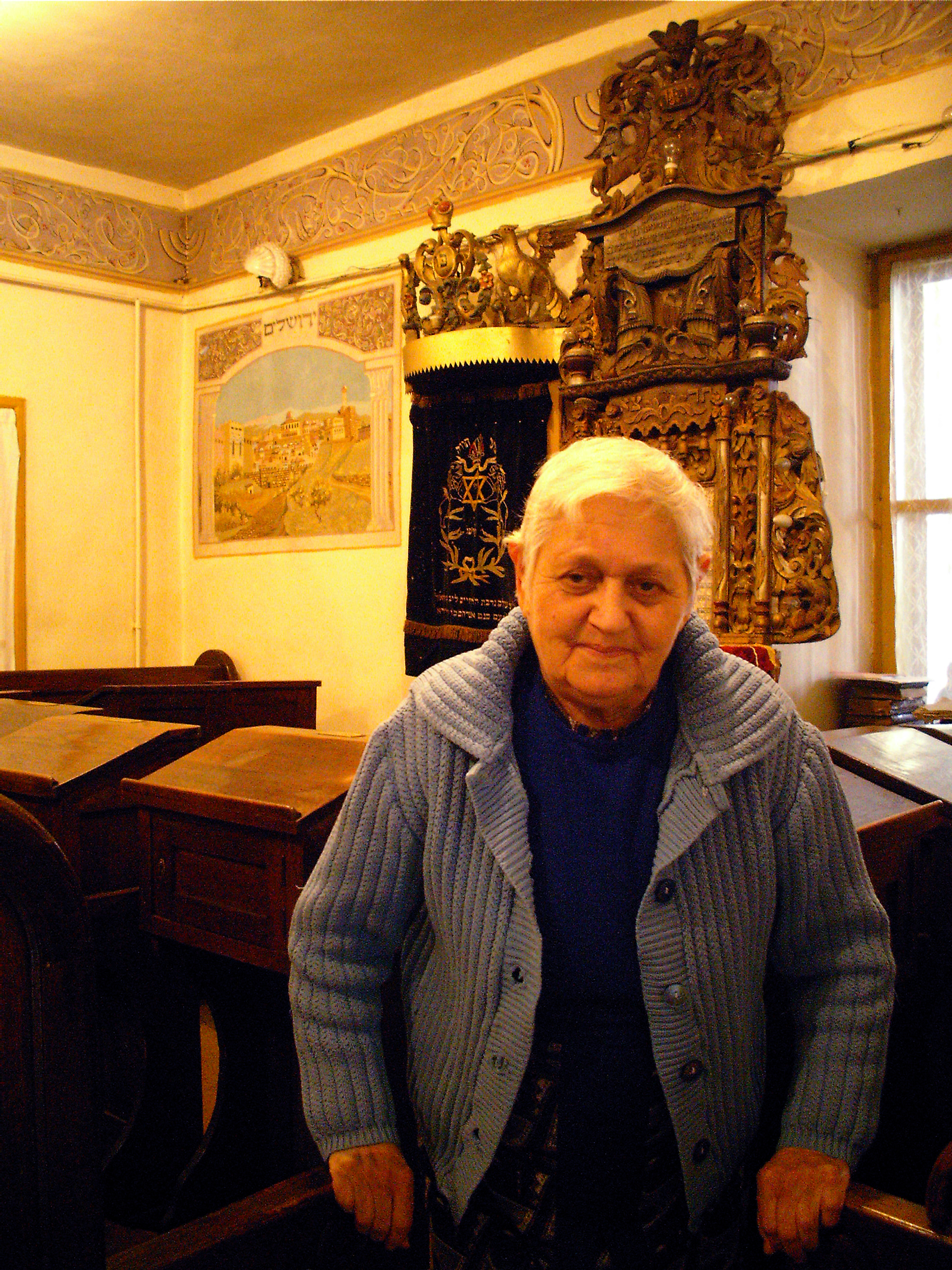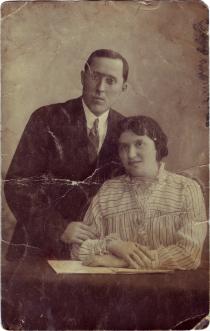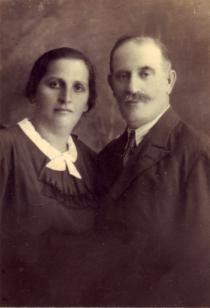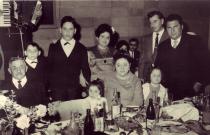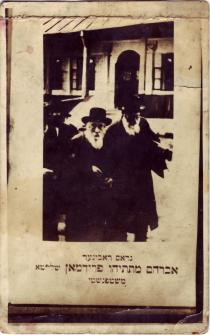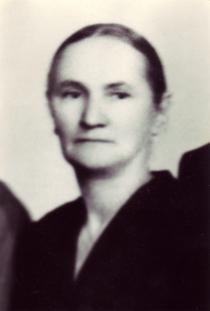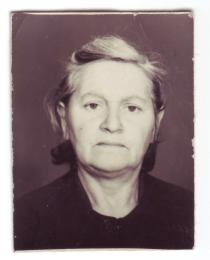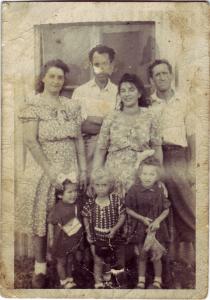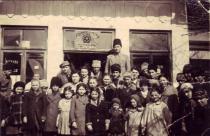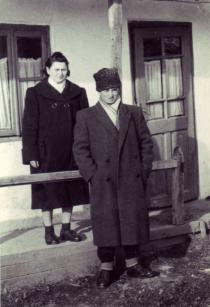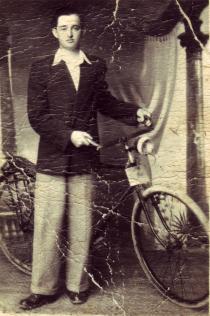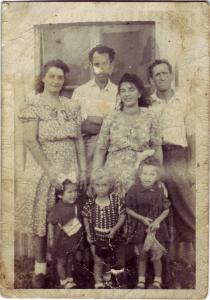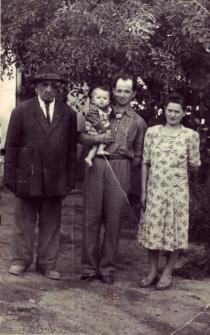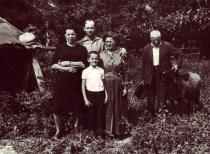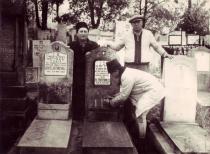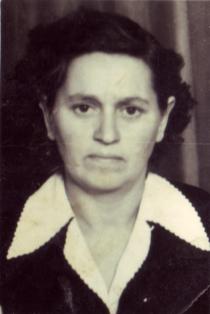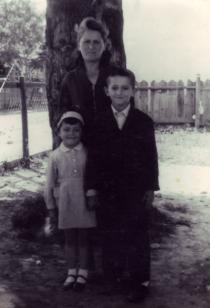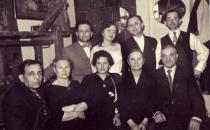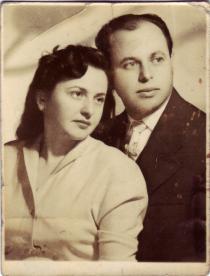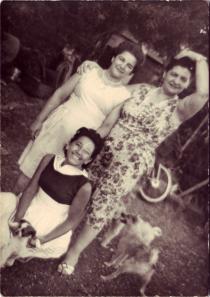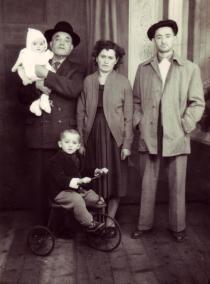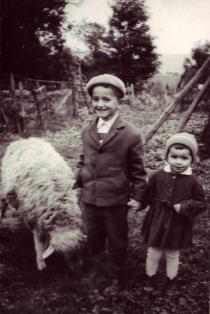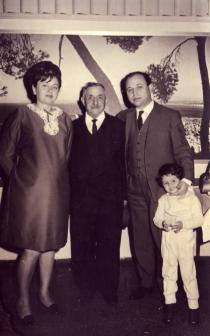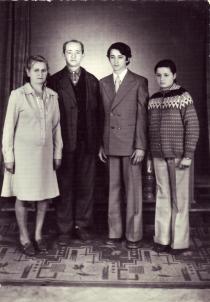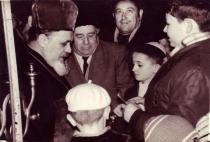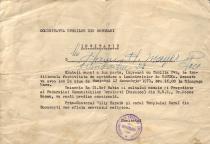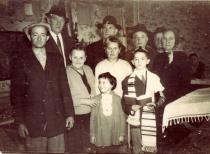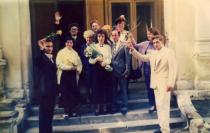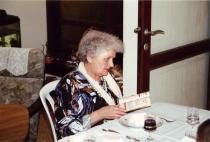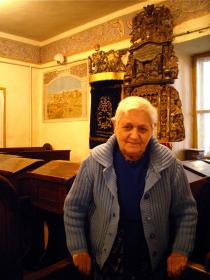This is I, Berta Finkel, at the synagogue in Botosani, in the small room for women, after the Rosh Hashanah religious service, in 2007.
My husband and I observed traditions. We had separate dishes for milk, for meat. We took the fowl to the hakham to be slaughtered. A hakham lived here, a certain Moscovici, who performed the slaughtering every Thursday. But this hakham left to Israel too, and he died there. Nowadays we still have a hakham in Bucharest, his name is Bruckmaier, but he is old, he is in his 80's, and he won't come to perform the slaughtering.
There was a Jewish bathhouse here in Botosani, too; when mother came here, I used to go with her to the bathhouse. But now that we live in a block of flats, we all have a bathtub, we take a bath in it every week, do you think I still go there and pay an entrance fee? In fact, there is a central bathhouse here, but it is state-owned. There no longer is a Jewish bathhouse.
I light candles on Friday evening. I light 5 candles myself, just like my mother. I do that, as I have several in-laws [who are dead]. My sister's husband died a year ago, and I also light a candle for him - even though he is so far away, in Israel, and I am here. I also say a prayer when I light the candles on Friday evening. I say it in Hebrew, for I can read Hebrew. I have a small prayer book, someone gave it to me before leaving to Israel, that's where I read the prayer from. My daughter lights candles as well. She uses two smaller candlesticks for doing that. I light the bigger ones. She says a prayer as well, she reads her own prayer, we don't read the prayer together.
Formerly, we celebrated seder at home. I always celebrated seder with my husband. Just us, the family - we, my father-in-law, my mother-in-law, when they were still alive. Now, they don't celebrate it as they once used to. Now people no longer celebrate it at home, now they invite us at the Canteen, and that's where we celebrate the seder evening. I go there myself, and my children do too, every year. That's when we eat a piece of kosher meat, for they send meat from Bucharest. And they cook soup at the canteen, they do everything that is required for Pesach, and they serve us a nice a plate of soup, and meat, matzah, potatoes, latkes, this and that. Formerly, they made matzah for Passover here in Botosani as well, but now they send it over from Israel. And they give us rations, they don't give us as much as we need. They invite us at the Canteen, when we celebrate Chanukkah, the Light of Lights, they call us then and serve us all sorts of dishes, especially dumplings filled with potatoes. The Canteen is located on 7 Aprilie St. There was also a synagogue there, ran by Moscovici, but it no longer exists now. The Canteen is near the old cemetery, a little further up the road. But it is no longer functioning, only on Passover, on the first seder evening, and on Chanukkah, when they organize a meal - that is all. The rest of the time the Canteen is no longer functioning.
On Yahrzeit, when I mourn after my parents, after my husband's parents, I always commemorate them in a prayer at the synagogue. I just commemorated my husband's death this Saturday. I bought brandy, I baked ginger bread, sliced it, wrapped it nicely in napkins, and I gave them away to people at the shul. What can we do? The dead must be remembered every now and then.
On holidays, we always went to the shul, in Botosani also. My husband went there more often. He went there twice a day, in the morning and in the evening. My son always accompanied him on Friday evening and on Saturday. The shul was there, close to where we lived - a house of prayer -, on Zimbrului St., just a bit further up the road. My husband went there twice a day. Formerly, people went to the shul both in the morning and in the evening, as well as during the week. Nowadays, they don't do that anymore. Here, men go to the shul only once a week. They only go there on Friday and on Saturday, that is all. There aren't even so many Jews, many of them died, and most of them are older, elderly people. I still go to the shul during the autumn holidays - on Rosh Hashanah, on Yom Kippur; we don't go there on Sukkot, but we go there on Simchat Torah. But when we go there, do women participate in the prayers? They sit there and chat. How one of them made fruit preserve, how another made zacusca [Ed. note: traditional Romanian vegetable spread]…
Now they no longer observe tradition as they once used to. Everything has been shattered. But we all remember just a little bit.
